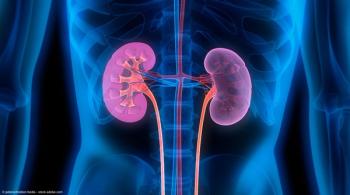
Investigators assess rates of mental health care in transgender youth
“In children and youth, there really [hasn’t] been an examination of the impact of gender-affirming care on mental health care use patterns," said Elizabeth Hisle-Gorman, MSW, PhD.
Data from a recent transgender health study, “Mental Healthcare Utilization of Transgender Youth Before and After Affirming Treatment,” support future clinical mental health screenings for transgender and gender-diverse (TGD) adolescents.¹
“In children and youth, there really [hasn’t] been an examination of the impact of gender-affirming care on mental health care use patterns…What does [gender-affirming care] mean and how do you operationalize it? In a younger child, there can be a lot of things done that are gender-affirming that don’t necessarily come up in the medical record. And so, we used…pharmaceutical gender-affirming care to act as a proxy for that,” said co-author Elizabeth Hisle-Gorman, MSW, PhD, an associate professor of pediatrics at Uniformed Services University, Bethesda, Maryland.
Using military health care data from 2010-2018, this respective cohort study assessed the mental health care diagnoses, visits, and psychotropic medication prescriptions of TGD youth who received care for gender dysphoria before the age of 18 and compared these data with that of their siblings. Assessments were conducted through logistic and Poisson regression.
Among 3754 TGD adolescents and 6603 cisgender siblings, TGD adolescents were more likely to have a mental health diagnosis (OR 5.45, 95% CI [4.77-6.24]), use more mental health care services (incidence rate ratio [IRR] = 2.22; 95% CI [2.00-2.46]), and be prescribed more psychotropic medications for their mental health (IRR = 2.57; 95%% CI [2.36-2.80]).
Regression analyses also compared the health care utilization of TGD adolescents pre- and post initiation of gender-affirming pharmaceuticals. Among 963 TGD adolescents (mean age: 18.2 years) who received gender-affirming pharmaceuticals, there was no significant change (IRR = 1.09, 95% CI [0.95-1.25]) in mental health care from before to after the initiation of those drugs. However, there was an increase in psychotropic medications (IRR = 1.67, 95% CI [1.46-1.91]) following the initiation of gender-affirming pharmaceuticals. Older age was associated with decreased mental health care and prescriptions.
“When we looked a little bit more closely, we found that the gender-affirming pharmaceutical care tended to come later in life than we had anticipated. That was…a little bit surprising,” Hisle-Gorman said. “The mean age of initiation of pharmaceutical care was after the age of 18, which may indicate that there was a lack of parental support for it.”
Other results found that pronounced increases in mental health care were caused by adjustment, anxiety, mood, personality, psychotic disorders, and suicide ideation/attempted suicide and psychotropic medication. In addition, pronounced increases in psychotropic medication were seen the most in serotonin-norepinephrine reuptake inhibitors, sleep medications, anti-psychotics, and lithium.
Due to the significant rates of mental health diagnoses in TGD youth as well as the increased utilization of mental health care after the initiation of gender-affirming pharmaceuticals, the study results support clinical mental health screening recommendations for TGD adolescents.
Co-author David A. Klein, MD, MPH, an associate professor of family medicine and pediatrics at Uniformed Services University, noted, however, “Just because [our study shows results]…in just a little bit of time after affirming medications, it doesn’t mean that the surgery that urologists are considering or subsequent medications that other providers are considering is not going to have long-term benefit. I think that’s an area that we’re still looking at very carefully.”
In their paper, the investigators said further research is needed to investigate the long-term impact of medical affirmation on mental health; possible factors to examine include family and social factors associated with mental health care patterns among TGD youth.
Reference
1. Hisle-Gorman E, Schvey NA, Adirim TA, et al. Mental healthcare utilization of transgender youth before and after affirming treatment. J Sex Med. 2021;18(8):1444-1454. doi:10.1016/j.jsxm.2021.05.014
Newsletter
Stay current with the latest urology news and practice-changing insights — sign up now for the essential updates every urologist needs.






